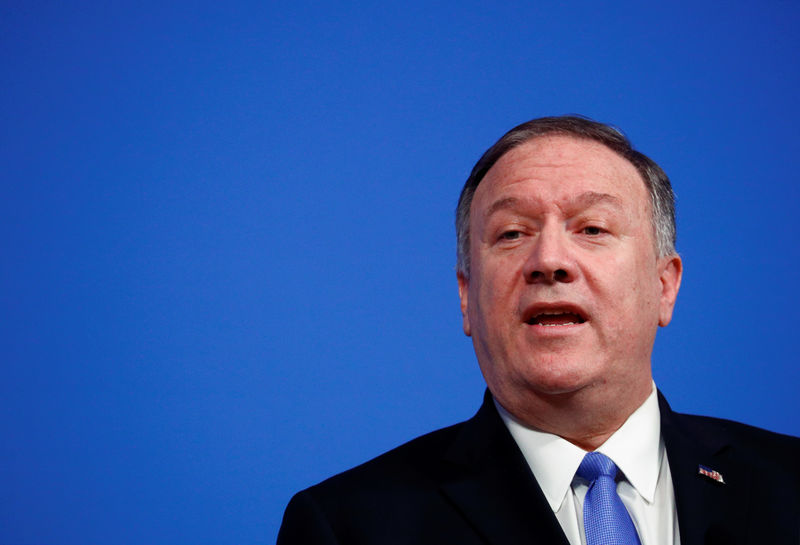WASHINGTON (Reuters) - The United States and Sudan plan to begin exchanging ambassadors after a 23-year gap, U.S. Secretary of State Mike Pompeo said on Wednesday in the latest sign of warming relations between the two countries.
The relationship between Washington and Khartoum has improved since the overthrow in April of President Omar al-Bashir and the formation of a civilian transitional government in August.
The announcement that the two countries would begin the process of exchanging ambassadors again came during Sudanese Prime Minister Abdalla Hamdok's first visit to Washington on Wednesday.
"This decision is a meaningful step forward in strengthening the U.S.-Sudan bilateral relationship, particularly as the civilian-led transitional government works to implement the vast reforms under the political agreement and constitutional declaration of August 17, 2019," Pompeo said in a statement praising Hamdok.
The prime minister discussed strengthening ties between the United States and Sudan during his meeting in Washington with David Hale, the U.S. State Department undersecretary for political affairs.
"After a 23-year interruption, it is great to see the start of the ambassadors exchange operation between Sudan and the United States of America. This is an important step towards rebuilding Sudan," Hamdok said on Twitter after the meeting.
Washington and Khartoum had been at odds for decades. The U.S. government added Sudan to its list of state sponsors of terrorism in 1993 over allegations that Bashir's Islamist government was supporting terrorist groups, a designation that makes Sudan technically ineligible for debt relief and financing from the International Monetary Fund and World Bank.
Last month, a senior State Department official said the United States may remove Sudan from the list and that the two countries no longer had an adversarial relationship. Congress needs to approve such a removal.
Months of demonstrations over price hikes for fuel and bread and cash shortages led to an uprising against Bashir, who was toppled by the military in April.

Sudan's transitional government was formed in August and it agreed with the United States that it could start engaging with international institutions while still on a list of countries deemed sponsors of terrorism.